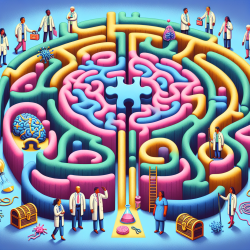Understanding the Complex Relationship Between Diabetes and Depression
Diabetes and depression are two conditions that often occur together, creating a complex challenge for both patients and healthcare providers. The NIDDK International Conference Report on Diabetes and Depression: Current Understanding and Future Directions provides valuable insights into this intersection, highlighting the need for integrated care approaches and further research.
Key Insights from the NIDDK Conference
The conference emphasized the bidirectional relationship between diabetes and depression, where each condition can exacerbate the other. Shared biological and behavioral mechanisms, such as inflammation, sleep disturbances, and lifestyle factors, play a significant role in this interplay. Recognizing these shared pathways is crucial for developing effective prevention and treatment strategies.
Implementing Research Outcomes in Practice
For practitioners, the report suggests several actionable steps:
- Integrated Care Models: Adopt multidisciplinary approaches that combine diabetes management with mental health support. This can include collaborative care models that integrate behavioral and pharmacological treatments.
- Screening and Early Intervention: Implement routine depression screening for patients with diabetes using standardized tools. Early identification can lead to timely interventions that improve both mental health and glycemic outcomes.
- Tailored Interventions: Develop personalized treatment plans that consider the unique needs of each patient, including cultural and socioeconomic factors that may influence treatment adherence and outcomes.
Encouraging Further Research
While current research provides a foundation, there is a need for more studies to explore:
- Longitudinal Studies: Conduct long-term studies to understand the life-course impact of diabetes and depression comorbidity.
- Mechanistic Research: Investigate the biological mechanisms linking these conditions to identify new therapeutic targets.
- Cross-Cultural Studies: Explore how cultural differences affect the presentation and treatment of comorbid diabetes and depression.
Conclusion
Addressing the dual burden of diabetes and depression requires a comprehensive approach that integrates research findings into clinical practice. By fostering collaboration across disciplines and encouraging ongoing research, we can improve outcomes for individuals facing these interconnected challenges.
To read the original research paper, please follow this link: NIDDK International Conference Report on Diabetes and Depression: Current Understanding and Future Directions.










